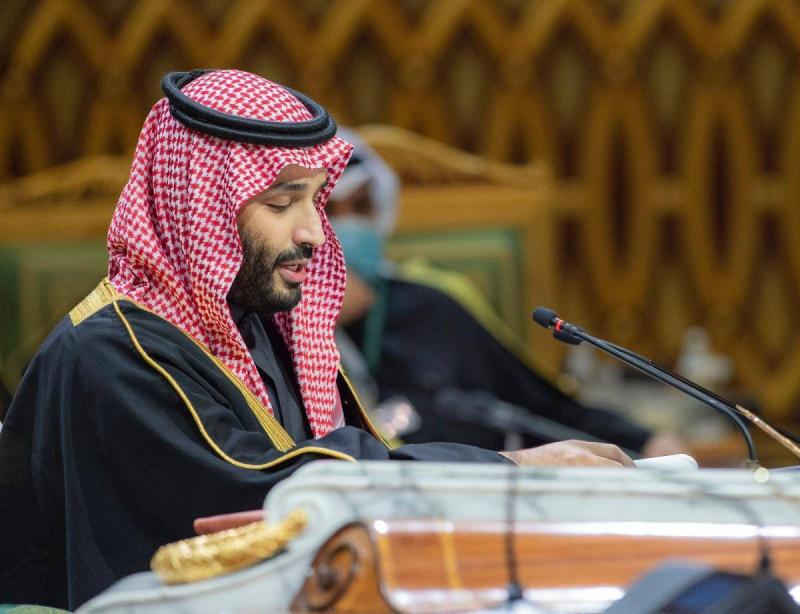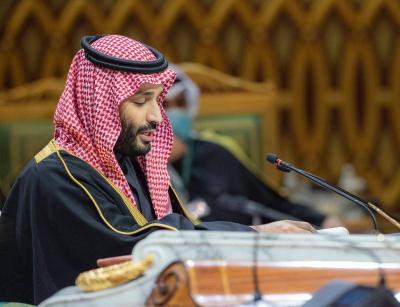Saudi Crown Prince Mohammed bin Salman bin Abdulaziz announced today (Tuesday) the conclusion and success of the 42nd Gulf Summit held at Al Diriyah Palace in Riyadh. In his closing remarks, Prince Mohammed bin Salman appreciated the contributions of leaders and heads of delegations in making this summit successful, emphasizing the collective solidarity to work for the welfare and prosperity of the Gulf Cooperation Council (GCC) countries.
The communiqué issued by the summit highlighted the agreement on principles and policies aimed at developing strategic cooperation and economic integration among the member states and meeting the aspirations of their citizens. The leaders stressed the importance of the precise, complete, and continuous implementation of the vision of the Custodian of the Two Holy Mosques, King Salman bin Abdulaziz, and completing the components of economic unity, the common defense system, and security coordination in a way that enhances solidarity and stability within the council's states, preserves their interests, avoids regional and international conflicts, and meets the aspirations and ambitions of their citizens. This includes consolidating regional and international political stances and confirming what was stated in Article Two of the Joint Defense Agreement, that member states consider any aggression against one of them to be an aggression against all, and any threat to one concerns all.
They emphasized the importance of coordinated efforts to align and integrate foreign policies of member states to formulate a unified and effective foreign policy that serves the aspirations and ambitions of the Gulf peoples, preserves their interests and gains, avoids regional and international conflicts or interference in their internal affairs, and achieves strategic support and integration between the economic, defense, and security policies in pursuit of common goals.
The leaders directed an emphasis on enhancing joint cooperation and coordinating plans aimed at achieving sustainability and addressing climate change and its impacts. They also called for increased collaboration among the council's states to implement the circular carbon economy approach initiated by Saudi Arabia during its G20 presidency, which has been approved by the group as a comprehensive framework to tackle challenges related to greenhouse gas emissions and manage them through available innovative technologies, while following up on the execution of initiatives, projects, and mechanisms launched by the GCC countries in this area.
They affirmed the responsibility of specialized committees to establish the necessary mechanisms to achieve optimal results regarding environmental protection and to benefit from the Green Saudi Initiative and the Middle East Green Initiative launched by Crown Prince Mohammed bin Salman. They aimed to enhance the collective Gulf efforts to address environmental challenges, increase vegetation cover, boost reliance on clean technologies for all energy sources, combat pollution, and preserve environmental life in all its forms, thus ensuring a dignified living standard for their citizens, while aligning with the circumstances, priorities, and developmental plans of member states, and in harmony with global sustainable development goals.
The leaders confirmed the importance of following up on the achievement of the economic visions of the GCC states to realize economic diversification, maximize benefits from economic potentials and unique opportunities to multiply shared investments, and improve the integration of road, rail, and communication networks among the council states. They aimed to support and bolster national industries, speed up their growth, provide the necessary protection for them, enhance their competitiveness, and elevate them to a leading industrial position capable of competing globally, while removing all obstacles and difficulties facing the implementation of decisions on economic cooperation among the GCC states.
They noted the significance of enhancing joint cooperation to continue combating the COVID-19 pandemic and the importance of supporting collective efforts to combat future pandemics and similar regulations as they arise. They encouraged the proposing of effective policies and strategies to deal with such circumstances in the future, helping to counter and address their economic and social impacts and travel conditions among GCC countries. They also highlighted the importance of continuing to support and enhance the role of Gulf women in economic development programs and their participation in joint Gulf work, as well as encouraging the role of youth in finance, business sectors, and humanitarian and volunteer work.
The leaders stressed the importance of fostering joint action towards digital transformation and modern technologies, enhancing cooperation and building alliances in the field of cybersecurity and information security in alignment with the aspirations of GCC states, and supporting the role of youth, the private sector, and small and medium enterprises in the growth of economic diversification and digital transformation, while encouraging partnerships, projects, and initiatives in this domain.
They tasked the committees, ministries, and general secretariat and all organs of the GCC to put the necessary programs in place to implement these principles and foundations.




